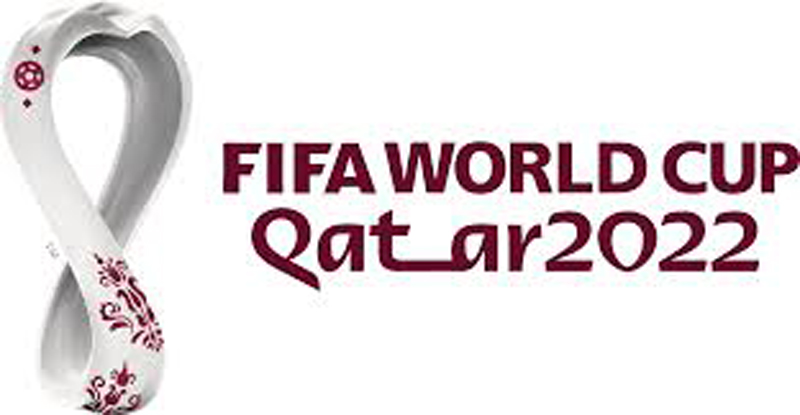

Four years after Vladimir Putin hosted the World Cup party, Russia is off the guest list.
While the soccer world focuses on the opening game of the World Cup in Qatar on Sunday, Russia will be playing a friendly game in Uzbekistan.
Russia was kicked out of World Cup qualifying after it invaded Ukraine and now can only play friendlies against the few nations prepared to accept its invitations.
The Russian men’s national team’s only game of 2022 so far was a 2-1 win over Kyrgyzstan in September. Russian clubs are barred from the Champions League and the women’s national team was removed from the European Championship.
Monday marked one year since the last competitive game of the Russian men’s national team, a 1-0 loss at Croatia on a swampy, waterlogged field. That meant Russia didn’t qualify for the World Cup directly and went into the playoffs. By the time those came around, Russia had invaded Ukraine.
Russia’s scheduled opponent, Poland, refused to travel to Moscow to play, as did the other teams in the playoff bracket. That raised the prospect of Russia qualifying for the World Cup by default. In legal battles at the Court of Arbitration for Sport, FIFA argued that letting Russia compete could cause more boycotts and “irreparable and chaotic” damage to its tournament. CAS let the ban stand.
Games against Iran and Bosnia-Herzegovina were planned for November but neither is taking place. Instead, Russia is touring two former Soviet nations to play Tajikistan and Uzbekistan.
The planned Iran game would have given Russia the credibility of facing a team which has qualified for the World Cup. Ukraine accuses Russia of using Iranian drones to attack its cities, something Russia denies. Ukraine asked FIFA to remove Iran from the tournament, though FIFA has not done so.
The president of the Russian soccer federation told local media that the game with Iran could be held in Qatar shortly before the World Cup. That could have been seen as a snub to FIFA. No date or venue was ever confirmed before Russia announced the Tajikistan and Uzbekistan games instead.
Putin endorsed plans for a friendly against Bosnia-Herzegovina in September, saying that “sport should unite, not divide, people.” That game was postponed indefinitely by the Bosnian soccer federation last month, after team captain Edin Džeko and the national players’ union opposed the game and expressed support for Ukraine.
Russia still has friends in the World Cup host nation. Qatar’s emir thanked Russia in October for its “great support” for organizing the World Cup when he met Putin for talks at a summit in Kazakhstan.
“We are also doing everything we can in terms of transferring the experience of preparing for the World Cup,” the Russian president said.
What exactly Russia’s support for Qatar involves is unclear, but Qatari officials have shown interest in the tight security around Russian games in 2018. For the first time at a World Cup, it included a mandatory “Fan ID” scheme. A ticket on its own wasn’t enough to enter the stadium. Fans provided personal data to get an ID card needed to pass stadium security, which also doubled as a visa to enter the country. The same is true of Qatar’s similar Hayya Card program.
There are more similarities.
Both Russia and Qatar were awarded their World Cups in a 2010 vote overshadowed by allegations of corruption.
Both nations also faced scrutiny over the working conditions for people involved in World Cup construction projects, including migrant workers. Activists accused Russia of unpaid wages, workplace deaths and unsafe conditions, including people being required to work in temperatures far below freezing.
Four years after the World Cup in Russia, there is tension between the government and soccer fans. The government has expanded its Fan ID scheme from the World Cup to cover league games within Russia, sparking a furious response from many fans. Groups of hardcore fans of Russia’s biggest clubs have been boycotting games rather than sign up for an ID.
Attendances for Russian league games average less than 11,000 this season. That’s a third lower than in the pre-pandemic 2018-19 season and less than the average for the Swiss and Portuguese leagues. It also means thousands of empty seats at many stadiums built for the 2018 World Cup.
Russian clubs have also seen key players — including Khvicha Kvaratskhelia, now at Napoli — move abroad for no transfer fee under a FIFA ruling that allows them to suspend their contracts during the war.
When the group stage at the World Cup gets going in earnest next Monday, eight Russian clubs will be busy at the Court of Arbitration for Sport trying to overturn that transfer ruling.